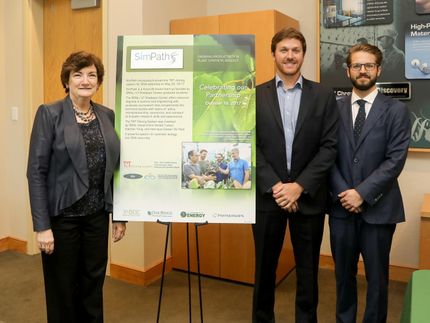BASF Plant Science, Genomine, Inc. and POSTECH sign license agreement in plant biotechnology
Focus on maximizing yields in crops such as rice and corn
Advertisement
BASF Plant Science, Genomine, the South Korean venture company and POSTECH, the South Korean university, entered a license agreement. Focus is on the discovery of genes that help maximize yields in staple food and feed crops such as rice and corn. This includes genes that increase yield under normal circumstances as well as under adverse environmental conditions such as drought.
“In today’s knowledge-based society, private-public collaborations such as this one will not only benefit the parties directly involved, but also benefit the country,” Professor Yang Do Choi, Director of the Korean Crop Functional Genomics Center, said. Over the past decade, South Korea has taken a leadership position in plant biotechnology research.
“Our company is geared towards finding genes that help farmers get the most out of their crops,” said Dr. Jürgen Logemann, Vice President Technology Management, BASF Plant Science. ”The work carried out by Genomine and POSTECH perfectly complements our research activities. As a leader in the discovery of genes and the development of traits, we strive to expand our position through continuous interaction with key universities and research institutes,” he added.
BASF Plant Science entered its first South Korean cooperation in 2007 with the Crop Functional Genomics Center, a major agreement involving 40 institutes.
POSTECH contributes to the agreement with its competencies in early discovery work. Additional competencies in gene discovery will be available through Genomine. BASF Plant Science is responsible for the further analysis and development of the genes in commercial crops, including rice and corn. The company brings better crops to farmers though collaborations with leading companies in the seed industry. Financial details of the agreement were not disclosed.

























































